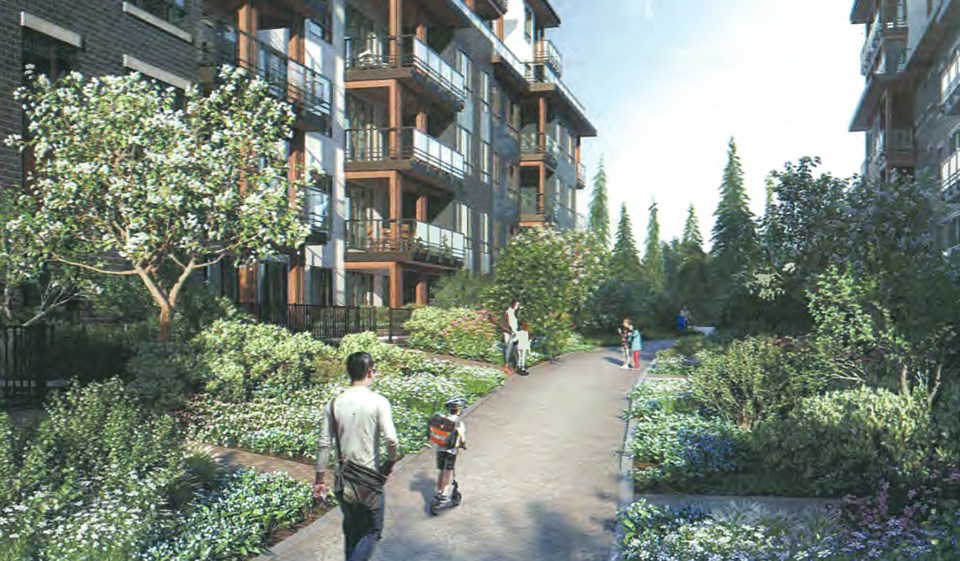Thousands of additional residents could be moving into a revamped area in the City of Delta in the coming years.
The final phase of planning is currently underway for a new plan for the Townline Node, currently a tired-looking part of the city that’s seen little change over the decades.
Planning staff are to bring forward a report to council in the coming months.
Currently dominated by older commercial buildings fronted by parking lots, it’s located in the northeast corner of North Delta near the intersection of Scott Road and 96th Avenue.
Often referred to as “the triangle”, the area is bounded by the City of Surrey to the north and east, the railway line to the west and 92nd Avenue to the south.
The long-term plan is to encourage redevelopment, changing it from industrial and service uses to a residential neighbourhood with mixed-use buildings along Scott Road.
It’s anticipated that the new district will accommodate up to 2,200 new residential units with a range of heights.
An application to construct a 29-storey, mixed-use tower in the 9300-block of Scott Road and 11900-block of 93A Avenue is located in the area.
A report to council notes the Mayor's Housing Task Force for Scott Road provided recommendations to council that includes the establishment of the Town Line as “an innovation district, with promotion of mixed-use and residential apartments and live-work opportunities and a strong public realm supporting active transportation. Mixed-use and residential towers between 18 to 29 storeys could be accommodated when the owner provides contributions towards community amenities and neighbourhood improvements.”
It’s one of several new, distinct districts that would be created along the corridor.
How much will Delta's population grow?
Meanwhile, Metro Vancouver is in the process of updating its population projections, this time until 2050.
Rather than focusing on projected numbers for each municipality, Metro is establishing six new sub-regions to better forecast growth.
The City of Delta is within the South of Fraser – West sub-region which also includes Richmond and the Tsawwassen First Nation.
The regional district, which grew from 2.38 million people in 2011 to 2.59 million people in 2016, is now projected, in general, to grow to about 3.8 million people by 2050, with an average annual growth of about 35,000 people.
The projections, aimed at being planning guides and not targets, also notes condos/apartments will comprise 50 per cent of all new home construction in the coming years.
As far as the City of Delta, Metro’s previous projections for the city have been consistently off as population and housing growth haven’t reached anticipated numbers.
The most recent projections had Delta reaching a population of 110,000 by 2021, but the city is about 8,000 off that mark.
Those same previous projections had Delta reaching a population of 121,000 by 2041.
The previous projections also had Delta reaching 39,000 dwelling units by 2021, but the city is currently over 3,000 off that number.




